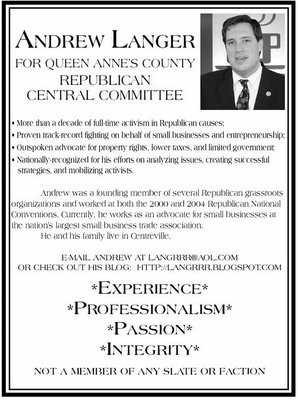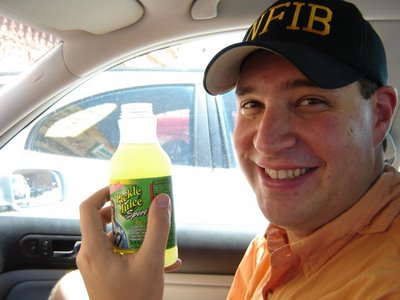I’d been meaning to put this list together for some time – along with my list of top pro-freedom, anti-statist films out there. The National Review came out with their list of top “conservative” rock songs (http://article.nationalreview.com/?q=NzZkNDU5MmViNzVjNzkzMDE3NzNlN2MyZjRjYTk4YjE=). I agreed with some of the entries – but their list was: a) limited to what they considered “conservative;” and b) to rock songs.
Obviously, music is a medium that effectively communicates the passionate beliefs of both the singer and the songwriter – more effectively, perhaps, than any book or pamphlet or even TV. Now, it goes without saying that I don’t look to artists for my political cues, but that being said, I like a good protest song.
And to me, I’d rather see a list of songs about freedom, and the struggle for freedom against the forces of tyranny and statism. So, I diverge from the potentially-schizophrenic “conservative list”. What’s more, my list isn’t confined to traditional “rock” music – it includes folk, a show-tune, and a rap song. I share some artists with the NR list, and one song (but more on that in a moment)…
10) Freedom Is A State of Mind (Peter Udell - The Shenandoah Soundtrack)
This is a song I’ve had in my head since I was a kid going to Fieldston camp when I was five. I didn’t know until a few years ago where it came from – all I knew was the truism, “Freedom’s in the state of mind!”. Yes, it was 1976, and yes, a song like this was par for the course that summer, nevertheless, it was a lesson that Fieldston ought to keep teaching, over and over again.
Incidentally, that summer of 1976 was an important one for me, politically, as I began to learn those important lessons as to who we are as a people and why. If you’re not into seeing “Shenandoah”, then I recommend another great musical in this vein (and a better one, as far as I’m concerned): 1776. It’s the story of the crafting of the Declaration of Independence, set to some very stirring music.
9) Philadelphia Freedom (Elton John)
Again, in the Bicentennial vein – though this single was released in 1975, it became very relevant the following year. Yes, it’s kind-of a disco tune, but how many disco songs have lines about living and breathing freedom?
8) The Patriot Game (authored by Dominic Behan, I prefer the version by the Clancy Brothers and Tommy Makem)
You don’t much more stirring or passionate songs about liberty than those written about Northern Ireland’s struggle against the British. I write more about the Clancy Brothers’ Carnegie Hall album below, but I single out “The Patriot Game” here. If you’re looking for a freedom-loving lullaby for the kids, this one’s a winner.
7) Find the Cost of Freedom (CSNY)
There were a number of Crosby, Stills, Nash and Young songs I could have put on this list (Ohio and Long Time Gone come immediately to mind), but “Cost of Freedom” sticks for its simple message: Freedom is a constant and self-sacrificing struggle.
6) Sunday, Bloody Sunday (U2)
New Year’s Day, Pride, and a number of other U2 songs come close, but if we’re talking about the hardest-hitting, hardest-rocking song of the modern-era struggle in Northern Ireland, Sunday, Bloody Sunday stands head-and-shoulders above the others.
5) Free Will/Tom Sawyer/New World Man (Rush)
Ok, so I break my promise here and choose not to select one Rush song. Why? Because all three of these songs stand together as representing Rush’s commitment to individual rights. Though “Free Will” probably has the best pro-liberty lyrics of the three (“If you choose not to decide, you still have made a choice.”, “New World Man” and “Tom Sawyer” are somewhat better songs.
4) Biko (Peter Gabriel)
The couple of times I’ve seen Peter Gabriel in concert have stood out for a number of reasons, but probably the most singular moments have been the live performances of this song. People get to their feet and raise their fists in honor of the memory of Steven Biko, who died in the struggle for freedom in South Africa in 1977. The “eyes of the world” did watch, and liberty was eventually won.
3) Freedom (Richie Havens)
Maybe some others wouldn’t put this impromptu, singularly simple song near the head of their list, but I do. At a time when liberal statists were duking it out with conservative statists trying to keep hold of power, Richie Havens reminded his brethren that in the end, it wasn’t about some nebulous idea of social justice, it was about freedom.
2) Fight The Power (Public Enemy)
When I did my radio show, I liked to juxtapose the quiet folk music of Bob Dylan with the thunderous rap of Public Enemy. Dylan and Chuck D are both poets, with similar messages, but severely contrasting methods. Scary as it might be to some, Chuck D hits the nail on the head: for an oppressed minority, opposing the power structure is the only way to transform society. And America is a nation where the power of the majority is held in check by the rights of individuals.
Perhaps I should put this song together with it’s sibling from the “Fear of a Black Planet” album, “Welcome to the Terrordome”. The two songs go hand-in-hand, inasmuch as Terrordome makes it clear that this struggle is an intellectual and mental one, not a violent one (“When I get mad I put it down on a pad…”).
But while Chuck D directs this message at people of color, it’s a message for all of us who fight the same struggle: too much power in the hands of any one group, especially the government, is a bad thing, and we must oppose it at all turns.
1) Won’t Get Fooled Again (The Who)
Alright, so this is where the NR list agrees with mine. But I will say that “Won’t Get Fooled Again” has been at the top of my list forever, long before the NR even contemplated making such a list. If The Who are the greatest rock band of all time (and in my estimation they are), then “Won’t Get Fooled Again”, as the Who’s best song, is the greatest rock song ever.
It has everything: great music, thunderous guitars and drums, it tested the bounds of musical technology (for its time), and it’s got a hard-hitting message.
The “Lifehouse” concept from which the song, and the album “Who’s Next” emerged, is one of several artistic endeavors into the subject of the individual versus society (Rush and Styx had their own versions, for instance, discussed below). “Baba O’Riley,” “Going Mobile,” “Pure and Easy,” and “Join Together” were further reflections on this theme.
But “Fooled Again” is at the pinnacle – with its celebration of freedom and its dire warnings against trusting politicians, it continues to stand the test of time.
Close, But Purposely Left Off:
1) Mr. Roboto (Styx)
Styx, The Who, and Rush have all written rock operas (or, at least, made concept albums) about the concept of tyrannical states destroying individual rights (generally as regards the public’s right to rock). In Styx’s iteration, Kilroy Was Here, the hero, Kilroy, evades capture by the statists by hiding in a robot. But instead of simply railing against an evil central state’s abuse of the public’s rights, Styx takes it a step further, turning Mr. Roboto into an anti-technology anthem.
In the end, it’s the same statist, liberal dogma: we’ll gladly exchange one overbearing, statist government for one made in our image.
A Whole Album To Check Out:
Really, if you want an entire album to get your pro-freedom blood pumping, I recommend The Clancy Brothers and Tommy Makem’s “In Person at Carnegie Hall”. From start to finish, the album contains gem after gem of pro-liberty music. Johnson’s Motor Car is an anthem about rapidly responding to a British attack on Irish rebels. And even the Childrens’ Medley takes a turn at instilling the importance of freedom in wee-ones.
Other folks have been working on their lists, too. Russell Roberts’ “Café Hayek” blog has his list of “Classical Liberal” folks songs (
http://cafehayek.typepad.com/hayek/2006/02/folks_songs_for.html ) - like him, I love the song “Joe Hill”, despite the fact that it’s a labor-organizing song. And Bryan Caplan has his list of “Punk Songs for Classical Liberals” on the EconLog blog:
http://econlog.econlib.org/archives/2006/02/punk_songs_for.htmlYes, I probably could have had some Clash, Ramones, even a Dylan tune – and there are some that are close to that top 10. But I’ll leave it here, and look forward to some recommendations from others.
- Andrew Langer





